Intro
Discover key Medicare enrollment dates, including Initial Enrollment, General Enrollment, and Special Enrollment periods, to ensure timely healthcare coverage and avoid penalties, with expert guidance on Medicare Advantage and Supplement plans.
Understanding the various Medicare enrollment dates is crucial for individuals who are nearing eligibility or are already enrolled in the program. Medicare provides essential health coverage for millions of Americans, and navigating its enrollment periods can be complex. In this article, we will delve into the key Medicare enrollment dates, their significance, and how they impact beneficiaries.
The Medicare program is divided into several parts, including Part A (hospital insurance), Part B (medical insurance), Part C (Medicare Advantage), and Part D (prescription drug coverage). Each part has its own set of rules and enrollment periods, making it essential for individuals to stay informed to avoid missing critical deadlines or facing penalties.
For those who are new to Medicare, the initial enrollment period is a critical time. This period typically starts three months before an individual's 65th birthday, includes the month of their birthday, and ends three months after. It is during this time that most people first enroll in Medicare, setting the stage for their future health coverage.
Understanding Medicare Enrollment Periods
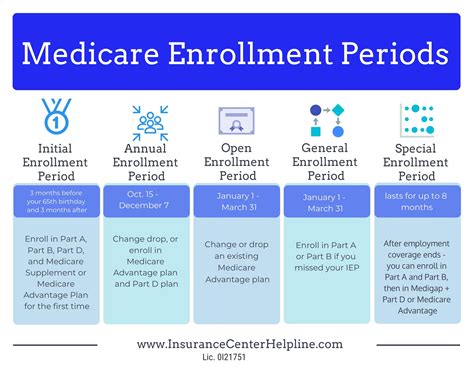
Medicare enrollment periods are designed to provide flexibility and accommodate different life situations. Beyond the initial enrollment period, there are several other enrollment dates and periods that beneficiaries should be aware of. These include the annual election period (AEP), also known as open enrollment, the Medicare Advantage open enrollment period, special enrollment periods, and the general enrollment period.
Initial Enrollment Period (IEP)
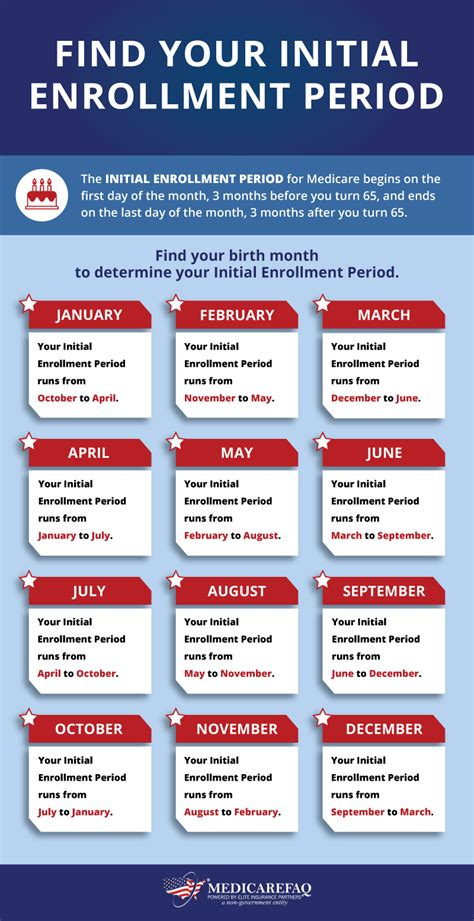
The initial enrollment period is the first opportunity for most people to enroll in Medicare. It is a seven-month window that begins three months before the month of an individual's 65th birthday and ends three months after. For example, if an individual's 65th birthday is in June, their initial enrollment period would start in March and end in September. Enrollment during this period is crucial, as it determines the start date of Medicare coverage and can impact premiums and coverage options.
Importance of the Initial Enrollment Period
- Avoiding Penalties: Enrolling in Medicare Part B during the initial enrollment period can help avoid late enrollment penalties. These penalties can increase premiums for as long as an individual has Medicare.
- Coverage Start Date: The timing of enrollment during the initial period affects when Medicare coverage begins. Generally, coverage starts on the first day of the month after enrollment.
- Health Coverage: For those retiring or losing employer coverage, Medicare provides essential health insurance. The initial enrollment period is a critical time for transitioning to Medicare.
Annual Election Period (AEP)
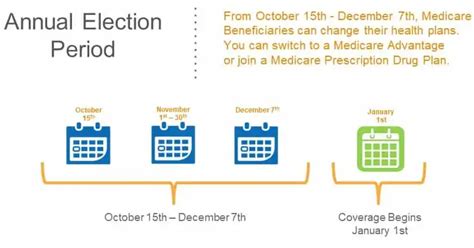
The annual election period, or open enrollment, occurs every year from October 15 to December 7. During this time, Medicare beneficiaries can make changes to their Medicare coverage, such as switching from Original Medicare to a Medicare Advantage plan, changing Medicare Advantage plans, or enrolling in a Medicare Part D prescription drug plan. This period is crucial for reviewing current coverage and making adjustments to ensure the best possible health insurance for the upcoming year.
Key Actions During AEP
- Review Current Coverage: Beneficiaries should review their current Medicare plan to ensure it still meets their health needs and budget.
- Compare Plans: Research and compare different Medicare plans, including Medicare Advantage and Part D plans, to find the best option.
- Make Changes: Enroll in a new plan, switch plans, or drop coverage during the AEP.
Medicare Advantage Open Enrollment Period
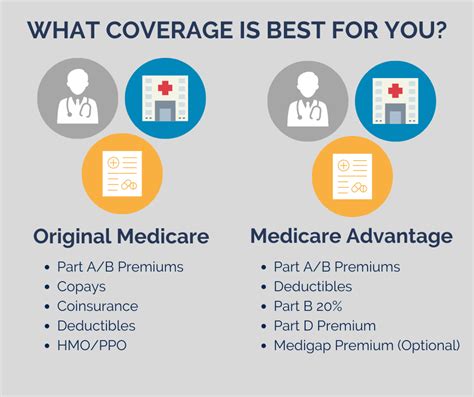
The Medicare Advantage open enrollment period is a separate enrollment window that allows individuals enrolled in a Medicare Advantage plan to make changes to their coverage. This period runs from January 1 to March 31 each year. During this time, beneficiaries can switch to a different Medicare Advantage plan or return to Original Medicare. This period provides an additional opportunity for beneficiaries to adjust their coverage if they find their current plan is not meeting their needs.
Benefits of the Medicare Advantage Open Enrollment Period
- Flexibility: It offers another chance to change Medicare Advantage plans or return to Original Medicare if the current plan is not satisfactory.
- Coverage Adjustments: Beneficiaries can adjust their coverage to better align with their health care needs and budget.
Special Enrollment Periods (SEPs)
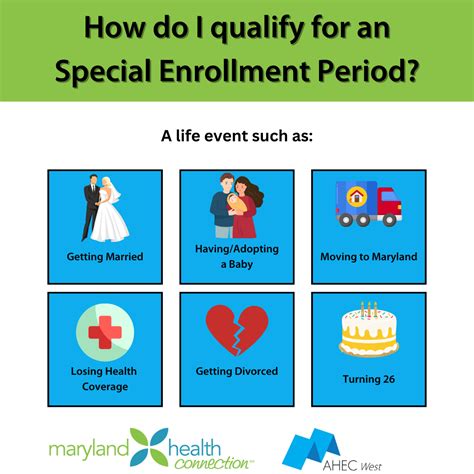
Special enrollment periods are available for individuals who experience certain qualifying life events, such as moving to a new area, losing current coverage, or becoming eligible for Medicare due to a disability. These periods allow beneficiaries to enroll in or change their Medicare coverage outside of the regular enrollment periods. The specific qualifying events and the duration of the special enrollment period can vary, so it's essential for individuals to understand their eligibility and the timeframe for making changes.
Qualifying Events for SEPs
- Moving: Moving to a new area that is not covered by the current plan.
- Losing Coverage: Losing current coverage, such as through job loss or the end of a group health plan.
- Becoming Eligible: Becoming eligible for Medicare due to a disability.
General Enrollment Period
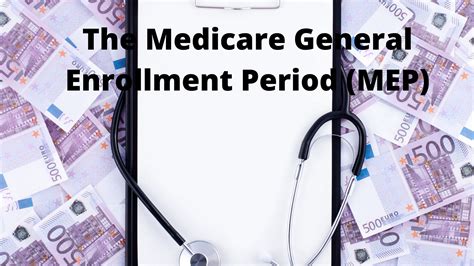
The general enrollment period for Medicare Part B occurs every year from January 1 to March 31. This period is for individuals who did not enroll in Medicare Part B during their initial enrollment period and are not eligible for a special enrollment period. Enrollment during the general enrollment period can result in a late enrollment penalty, and coverage will begin on July 1. It's a last resort for those who missed earlier enrollment opportunities and do not qualify for a special enrollment period.
Considerations for the General Enrollment Period
- Late Enrollment Penalty: A penalty may be applied to Part B premiums for late enrollment.
- Coverage Start Date: Coverage begins on July 1, regardless of when enrollment occurs during the period.
In conclusion, understanding the various Medicare enrollment dates and periods is vital for navigating the complex world of Medicare. By being aware of the initial enrollment period, annual election period, Medicare Advantage open enrollment period, special enrollment periods, and the general enrollment period, beneficiaries can make informed decisions about their health coverage, avoid penalties, and ensure they have the best possible insurance for their needs.
To further assist in understanding these concepts, let's address some frequently asked questions:
What is the initial enrollment period for Medicare?
+The initial enrollment period is a seven-month window that starts three months before the month of an individual's 65th birthday and ends three months after.
Can I change my Medicare plan during the annual election period?
+Yes, during the annual election period from October 15 to December 7, you can change your Medicare coverage, including switching from Original Medicare to a Medicare Advantage plan or enrolling in a Part D prescription drug plan.
What is a special enrollment period, and how does it work?
+A special enrollment period is a time outside the regular enrollment periods when you can enroll in or change your Medicare coverage due to certain qualifying life events, such as moving or losing current coverage.
We hope this comprehensive guide to Medicare enrollment dates has been informative and helpful. If you have further questions or would like to share your experiences with Medicare enrollment, please comment below. Sharing this article with others who may be navigating the Medicare system can also be beneficial. Together, we can ensure that everyone has the knowledge they need to make the best decisions about their health coverage.
